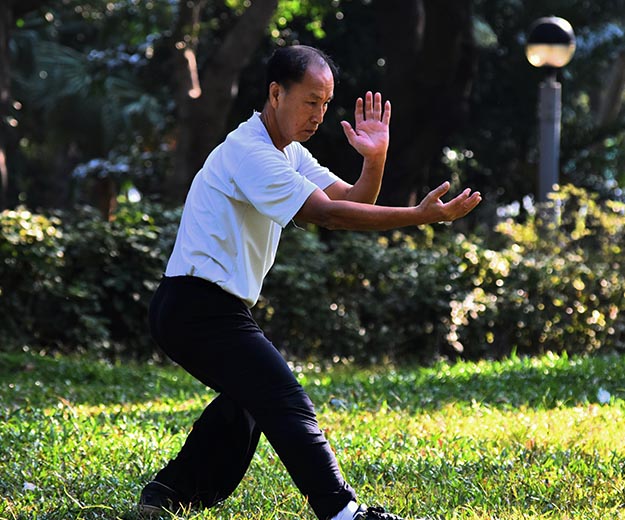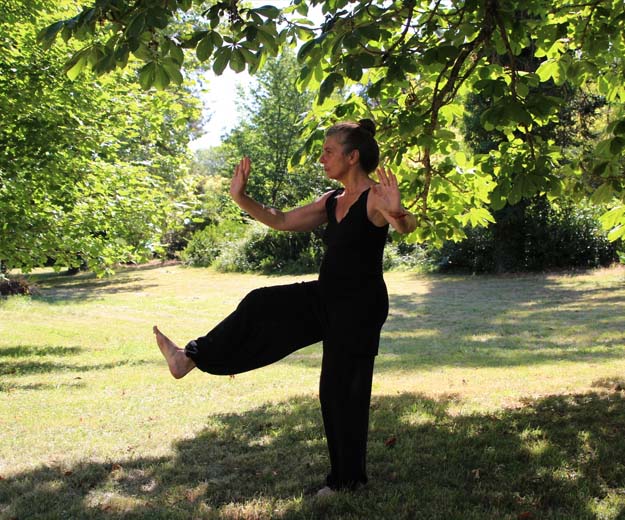10 Benefits of Doing Tai Chi Weekly: Improve Your Health and Well-Being
Have you been looking for a low-impact and relaxing form of physical activity that can help reduce stress and improve both your physical and mental health? Look no further than tai chi! This ancient Chinese practice has been gaining popularity around the world for its numerous health benefits. In this article, we’ll explore the top benefits of doing tai chi weekly.
The Benefits of Doing Tai Chi Weekly
Tai chi is a form of mind-body therapy that involves slow and gentle movements along with deep breathing and mental focus. Practicing tai chi regularly has been shown to provide a wide range of health benefits. Let’s take a look at some of the key benefits of doing tai chi weekly.
1. Reduces Stress
One of the primary benefits of tai chi is its ability to reduce stress. Through its slow and gentle movements, tai chi helps to relax the body and mind, which can help to reduce feelings of anxiety and improve overall mental well-being. A study published in the Journal of Psychiatric Research found that tai chi can significantly reduce symptoms of anxiety and depression.
2. Improves Balance and Coordination
Tai chi is a low-impact form of exercise that involves shifting your weight from one foot to the other while maintaining balance and coordination. This type of movement can help to improve balance and prevent falls, especially in older adults.
3. Enhances Flexibility and Range of Motion
The slow and gentle movements of tai chi help to stretch and lengthen the muscles, which can improve flexibility and range of motion. This can be especially beneficial for individuals with joint pain or stiffness.
4. Strengthens Muscles
Tai chi involves utilizing muscles throughout the body, which can help to strengthen and tone muscles over time. A study published in the Journal of Aging and Physical Activity found that tai chi can help to increase upper-body strength in older adults.
5. Boosts Immune Function
Research has shown that tai chi can help to boost immune function and improve overall health. A study published in the Journal of the American Geriatrics Society found that tai chi can help to increase the production of immune cells in older adults.

6. Promotes Mind-Body Connection
Tai chi is a practice that emphasizes the connection between the mind and body. Through its focus on breathing, mental focus, and controlled movements, tai chi can help to improve mindfulness and promote a greater awareness of the body.
7. Reduces Inflammation
Chronic inflammation is a risk factor for many health conditions, including heart disease, diabetes, and cancer. Research has shown that tai chi can help to reduce inflammation in the body, potentially lowering the risk of these health conditions.
8. Improves Sleep
Practicing tai chi regularly can improve sleep quality and duration, according to a study published in the Journal of Clinical Sleep Medicine. This benefit is especially relevant for older adults, who may struggle with sleep disturbances.
9. Lowers Blood Pressure
High blood pressure is a common health concern that can increase the risk of heart disease and stroke. Tai chi has been shown to lower blood pressure in individuals with hypertension, according to a study published in the Journal of Alternative and Complementary Medicine.
10. Encourages Socialization
Tai chi classes offer the opportunity to meet new people and socialize while engaging in physical activity. This socialization may provide additional mental health benefits, such as reducing feelings of loneliness and isolation.

FAQs
Q1. What is tai chi?
Tai chi is an ancient Chinese practice that involves slow and gentle movements, deep breathing, and mental focus. It is often referred to as a mind-body therapy due to its focus on the connection between the mind and body.
Q2. How often should I practice tai chi?
It is generally recommended to practice tai chi at least two to three times per week for best results. However, even practicing once a week can be beneficial.
Q3. Is tai chi suitable for all ages?
Yes, tai chi is a low-impact form of exercise that is suitable for individuals of all ages and fitness levels. Modifications can be made to accommodate any physical limitations.
Q4. Do I need any special equipment to practice tai chi?
No, you do not need any special equipment to practice tai chi. Loose-fitting and comfortable clothing is recommended.
Q5. Can tai chi be practiced at home?
Yes, tai chi can be practiced at home with the help of online classes or instructional DVDs. However, it is recommended to learn from a certified tai chi instructor to ensure proper form and technique.
Q6. What are some common forms of tai chi?
Some common forms of tai chi include Yang, Sun, Wu, and Chen styles.
Conclusion
Tai chi is a relaxing and low-impact form of exercise that offers numerous benefits for both the body and mind. From reducing stress and improving balance to boosting immune function and promoting mindfulness, tai chi is a great addition to any wellness routine. So why not give it a try and start experiencing the benefits of doing tai chi weekly?
